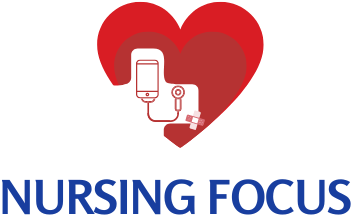The process of nursing education is dynamic and extends beyond texts and lectures. Nursing students must be well prepared for their future jobs through experiential learning, which includes practical experiences in actual healthcare settings. Experiential learning provides students with beneficial chances to put their theoretical knowledge into practice, hone their clinical abilities, and acquire the essential qualities needed for a competent and compassionate nursing practice. These possibilities include clinical rotations, volunteer work, and healthcare internships. We will look at the importance of experiential learning in nursing education and how it affects student growth in this post.

The five main components of experiential learning in nursing education are as follows:
1. Bridging The Gap Between Theory and Practice:
- Experiential learning acts as a link between the theoretical knowledge learned in the classroom and its practical application in actual healthcare settings, bridging the gap between theory and practice.
- While lectures and textbooks give a foundation, nursing students actually understand how to apply their knowledge to patient care through hands-on experiences.
- Students can gain a greater grasp of nursing principles through experiential learning, which enables them to connect theory with practice and observe the intricacies of healthcare first-hand.
2. Skills Development:
- Nursing students get the chance to refine and enhance their clinical skills through experiential learning.
- Students acquire practical experience in carrying out operations, delivering drugs, and putting nursing interventions into action through direct patient care and under the supervision of skilled healthcare professionals.
- These hands-on learning opportunities help students develop their technical skills as well as their confidence in their capacity to deliver competent and safe care.

3. Developing Professional Competencies:
- Experiential learning extends past the acquisition of technical abilities.
- It develops a variety of professional skills necessary for effective nursing practice.
- Students gain proficiency in communication through contact with patients, families, and interdisciplinary healthcare teams.
- They get knowledge on how to actively listen, communicate information clearly, and show empathy and compassion.
- Experiential learning also fosters the growth of well-rounded and patient-centered nursing professionals by encouraging traits like cultural sensitivity, ethical decision-making, and cooperation.
4. Exposure to Diverse Populations and Healthcare Environments:
- Exposure to various patient populations and healthcare environments is one of experiential learning's key benefits.
- Students get hands-on experience caring for patients of all ages and with a variety of medical issues through clinical rotations in various departments and healthcare facilities.
- Their perspective is widened by this experience, which also makes them more aware of the particular requirements and difficulties that other patient populations encounter.
- It equips students to deliver skilled and culturally appropriate care in a range of healthcare settings.

5. Application of Evidence-Based Practice:
- Nursing students are encouraged to use the ideas of EBP in real-world situations through experiential learning.
- As they apply research into their patient care strategies, students get the chance to watch and take part in clinical decision-making processes.
- Students gain the ability to critically analyze research, assess solutions, and make well-informed clinical decisions through participating in experiential learning.
- The quality of treatment provided to patients is improved by this capacity to incorporate research into practice.

An essential part of nursing education is experiential learning. It gives theory life, improves clinical capabilities, and fosters key professional talents. Experiential learning helps nursing students become safe, knowledgeable, and compassionate caregivers for a variety of patient groups by bridging the gap between theory and practice. The incorporation of experiential learning is becoming more important as nursing education develops.

For more nursing tips and guidance kindly check out our mfocusreview.com website
To download our Nursing Focus app, click the following link:
Android Store:
https://play.google.com/store/apps/details?id=com.nursingfocus
Apple Store:
https://apps.apple.com/app/nursing-focus/id1633014109

